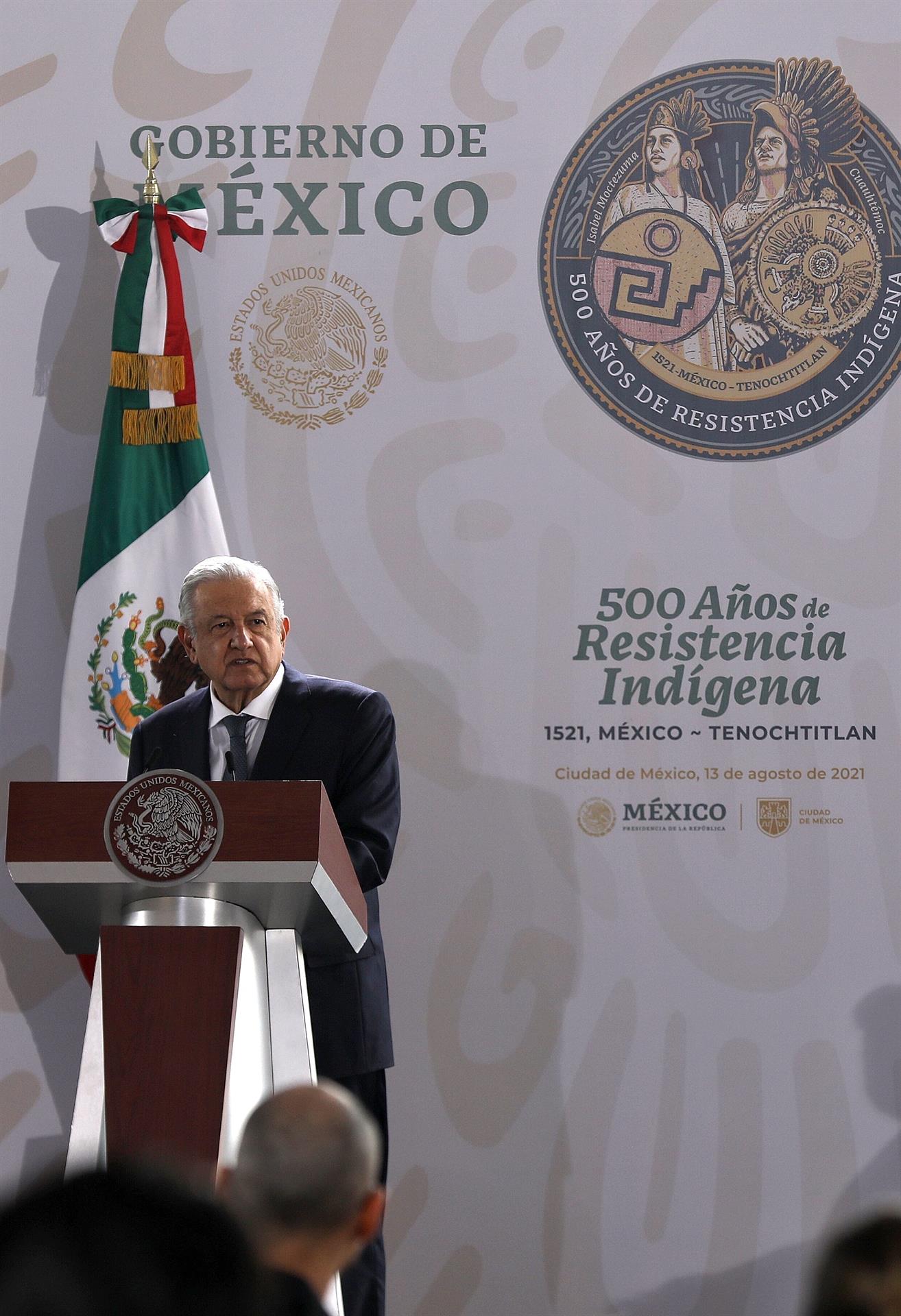Mexican president Andrés Manuel López Obrador has this Friday apologized for the "catastrophe" caused by Spanish colonization, at the commemoration of the 500th anniversary of the conquest of Tenochtitlan by the troops of military captain Hernán Cortés.
"We remember the fall of the great Tenochtitlan and offer forgiveness to the victims of the catastrophe caused by the Spanish military occupation of Mesoamerica and the rest of the territory of the current Mexican Republic," the president said at the official ceremony.
López Obrador celebrated five centuries of "indigenous resistance", the expression with which his government has renamed the Castilian conquest of August 13th, 1521, questioning the effects of the "massacres of the conquistadors" and the three centuries of colonization.

The Mexican president, Andrés Manuel López Obrador / EFE
The Mexican president warned that it is not "easy to make an objective analysis" of "military occupation" and "Spanish colonization" because there are few "primary" sources from the indigenous peoples on the events that occurred. He acknowledged that the sources that predominate "tend to justify" the invasion in the name of "freedom, faith, racial superiority, and civilization."
For this reason, he considered it "offensive" to return to the idea that Mesoamericans, and especially the Mexica people, were "barbarians" because, among other things, they "ate human flesh." "It is known that several indigenous peoples such as the Totonacs, Tlaxcaltecs, Otomi, Texcoco and others, and not 110 nations, helped Cortés to take over Tenochtitlan, but these gestures should not serve to justify the killings carried out by the conquistadors nor does it detract from the cultural richness of the vanquished,” he underlined.
Opponents of the Mexica gave support to Cortés in order to feel “free,” but not to be exploited, he stressed.
In this context, and after a historical review of the Spanish conquest, he stressed that Hernán Cortés should not be seen "as a demon" either, because he was "simply a man of power, a military man, with courage and aplomb, an evil soldier, and a bold and ambitious politician of fortune."
Thus, López Obrador stressed that the "required question" is whether the Castilian "massacres" perpetrated against indigenous people five centuries ago "brought civilization" to the land renamed New Spain, and he spoke of murder, rape, looting and exploitation.
He indicated, however, that during the Spanish colonial period there were positive aspects, such as the construction of beautiful palaces and temples, that there was an economic boom in mining, and universities and the printing press arrived.
"But all this and more is not enough, and even less so if we consider that it was in order to benefit everyone," he said, arguing that indigenous people could only "survive in poverty" or work in mines and farms "as slaves". He also cited historians who point out that the population in the region fell by 93% half a century after the arrival of the Spaniards due to the diseases they brought.
With a very extensive programme of activities, this year the country also commemorates the 700th anniversary of the founding of Mexico-Tenochtitlan, in addition to the 500th anniversary of the conquest of Hernán Cortés and the 200th anniversary of Mexican independence.

